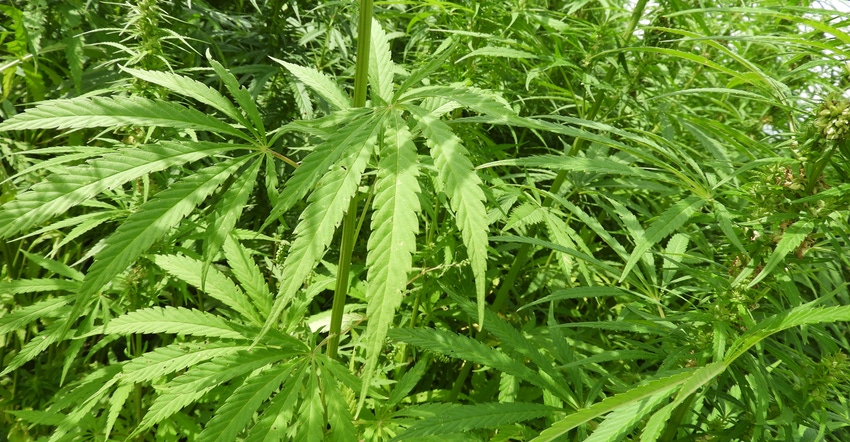
Every day I'm on Twitter, I'm reminded of the struggles farmers are going through. Consider the plight of the dairy farmer.
I recently put together a story on an upstate New York woman who was leading a "crockpot brigade" of hot meals for farmers in need. It's a great thing, and I'm happy to see this happening. But at the same time, I know farmers aren't ones to ask for handouts. They are too prideful. All they want is a chance to be successful under fair rules and a fair market.
One crop that has a lot of promise is hemp. It has a variety of uses — 25,000, according to some estimates — from food to fiber to oils. The 2014 Farm Bill paved the way for states to establish pilot programs and research on industrial hemp. But many states have gone further.
Here in the Mid-Atlantic and Northeast, Maine, Maryland, Massachusetts, Vermont and West Virginia allow for the commercial production and sale of hemp. Most other states in the region allow the growth of hemp for research.
The latest to join the group is New Jersey. Last month, the governor signed a law legalizing hemp production.
Pennsylvania is accepting 10 more applications in 2019 for its hemp pilot program; a total of 60 permits will be doled out. Anyone can apply so long as they pay a $300 application fee and then an additional $2,000 fee if they're selected to grow the crop. Renewal applicants must pay a $600 fee.
I'm a big fan of allowing hemp production. For one thing, it gives farmers another opportunity. I know some people don't like hemp production because they see it as a gateway to other drugs. That's understandable, but how can you justify allowing farmers to grow tobacco, hops or wine grapes? It doesn't make sense to me, especially considering farmers once grew hemp by the thousands of acres. Heck, there is a township not too far from me, Hempfield Township, that was named after the many acres of hemp grown in the area.
Now, can it grow on farms? That remains to be seen. As former editor John Vogel wrote in a column last year, there are lots of things to remain wary of when it comes to hemp production.
They need to be grown in well-drained soils with a pH between 6.0 and 7.0. They can also be sensitive to crusting and compaction, according to Penn State Extension.
The ideal planting date is May through early June, but they don't need much sunlight. In fact, hemp only matures when day length is less than 12 hours of sunlight.
The key to producing hemp, though, is making sure the levels of THC, or tetrahydrocannabinol, are below 0.3%. Since the federal government still regulates hemp as a Schedule 1 narcotic (that may change with the 2018 Farm Bill) seed has to be imported. You can also you can get it from another grower in the same state, but not from a grower in another state.
There are no herbicides labeled for hemp, so mechanical weed control is necessary.
Penn State Extension has more information available online.
Hemp won't be a cure-all for farmers' struggles. I'm totally aware of that. Heck, it might be a dud, or even a bad weed. But at a time when there is so much negativity and uncertainty around agriculture, especially dairy, it's time for farmers to look forward and try something different.
About the Author(s)
You May Also Like






